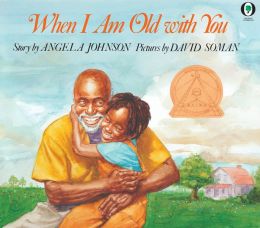I am turning 60 next month.
For those outside of Ohio, this card is the key to all senior benefits in our state-- all discounts, special deals, and elderly offers-- and it also doubles as a prescription card.
The Golden Buckeye Card ushers in your golden years. So receiving it in the mail is significant. It signals a shift in your personal demographics, a transformation in the way society will classify and see you, and also an acceleration of the hands on the clock keeping your time.
I laughed when I opened the envelope and saw what it contained. A laugh of acknowledgement and recognition, surprise and disbelief, acceptance and knowing.
What does aging mean in our society today?
I certainly don't feel 60---and have been told that I don't look 60 either.
What does 60 actually look like?
For me as a young child, it used to mean grey hair, grandchildren, canes, and retirement. It used to mean long hair in buns, and spectacles, arthritis and false teeth. It also meant expanding girth or withered bodies and shrinking height. It meant black tie-up shoes with chunky heels and a faint older of a perfume from a distant century.
I look at my friends-- and our parents for that matter--and although some of these elements may be present, it looks different.
It doesn't look like my connotations of 60.
For children, ideas about aging vary---either they think you are very old, when you are not really. Like my students who would believed I was 50 or 60 when I was in my twenties. Or there are those who don't recognize the aging and are surprised to find out your advancing age. You are older than my mother (or grandmother), they exclaim in shock.
In When I Am Old With You by Angela Johnson, a little girl enjoys her granddaddy's company and speculates about the fun they will have and the activities in which they will engage when she is "old with him."
In Love You Forever by Robert Munsch, we follow the growth of a baby boy to manhood and the unwavering love of his mother for him as he grows. She gathers him in her arms and sings him the following song through each stage in his life:
I’ll love you forever,
I’ll like you for always,
as long as I’m living
my baby you’ll be.
In the end (spoiler), when she is too weak to finish the song, having aged along with him, he gathers her in his arms and sings to her:
I’ll love you forever,
I’ll like you for always,
as long as I’m living
my mom you’ll be.
To watch a video of the book with Robert Munsch, himself as the narrator, click here.
.
Even when we are not very old, anticipating, dreading, or otherwise thinking about our age is universal.
As children we anxiously look forward to our birthdays--some hold more significance than others for various reasons. We start school at 5. We drive at 16 . We graduate and, perhaps, leave home at 18.
Billy Collins helps us think like a nine-year-old anticipating his tenth birthday in his poem, On Turning Ten. He laments leaving childish things behind as he enters the realm of double digits:
...This is the beginning of sadness, I say to myself,All is not doom and gloom, however, as we age.
as I walk through the universe in my sneakers.
It is time to say good-bye to my imaginary friends,
time to turn the first big number...
There are some definite advantages to becoming older.
For one thing, speaking your mind, which I have always done, regardless of my age, is more accepted/expected when you are older. Saying exactly what you want to say, and doing exactly what you want to do is okay.
We determine not to leave undone those ambitious "want to's" and release silly " have-to's" and embrace our aging with gratitude and grace.
This liberating attitude is expressed magnificently in When I am an Old Woman I Shall Wear Purple edited by Sandra Hardeman Martz.
The title of this book is taken from the poem of that same name by Jenny Joseph and begins:
I shall wear purpleYou can read the entire poem along with other poems about aging here on Library Thing.com.
With a red hat which doesn't go, and doesn't suit me,
and I shall spend my pension on brandy and summer gloves
and satin sandals, and say we've no money for butter.
I shall sit down on the pavement when I'm tired
and gobble up samples in shops and press alarm bells
and run my stick along the public railings
and make up for the sobriety of my youth. .....
Additional poems about aging can be found here at Poets.Org.
So I got my Golden Buckeye Card.
I am turning 60 next month.
The same day, almost immediately after I opened that envelope, I went out to run my errands for the day. The first stop was the gas station. There a car pulled up next to me as I was returning to my car. A young man rolled down his window, and said to me You look goooood in that black! The "black" that I wore is below- -simple black jeans and a knit shirt.
I laughed as I thanked him.
A laugh of acknowledgement and recognition, surprise and disbelief, acceptance and knowing.
I turn 60 next month.
Today's Deeper Writing Possibility
Think about your current age and the process of aging.What ages were most significant for you? Why?
Write a reflection about aging personally or aging in general.
Your reflection may take the form of a poem or essay or personal narrative.
What did you discover as you wrote about aging?
.




.JPG)
No comments:
Post a Comment